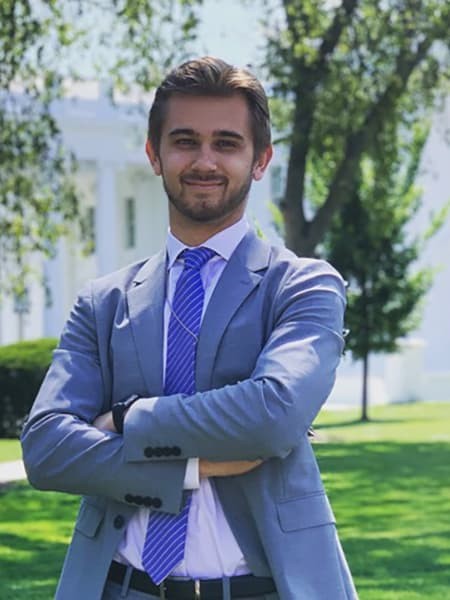Connor Shine '19

Connor Shine '19
Advice for students thinking about graduate school in International Relations
I submitted my first essay in graduate school yesterday and I almost handed it in with ‘Boston College’ written across the cover page. It felt extremely weird to replace it with “Johns Hopkins University.”
Currently, I am a first year Masters of Arts student at the Johns Hopkins School of Advanced International Studies (SAIS). At SAIS, I am concentrating in International Finance and International Political Economy. While the Johns Hopkins undergraduate campus is in Baltimore, SAIS is in Washington, D.C.
As I learned from my grad school search last year, Washington is the place to be for IR— almost all of the top international relations schools (with the exception of Harvard, Tufts, and Columbia) are here in D.C. And that makes sense. Since moving to D.C. four months ago, I can honestly say that I believe there is no better place to study international relations than here in Washington D.C. Having access to the incredible contacts, government agencies, multilateral organizations, NGOs, and think tanks here has been crucial already to my professional development. If you are interested in a master’s degree in international relations, I highly encourage you to look into coming down to Washington.
Here are some other tips for current IS students at BC thinking about going to graduate school for international relations.
- Save everything. The IS program at Boston College is stellar. Most international relations graduate programs require applicants to take or have taken certain courses that are already in BC’s IS curriculum. Thanks to BC, I was able to waive eight classes and replace them with higher level electives. Because I saved all of my old handouts, slides, and notes from these classes, I had them as reference as I took my waiver exams— so save everything! What you’re learning right now will definitely come in handy later, especially at SAIS. Don’t toss your micro-principles notes, yet.
- Visit Connolly House more. You may have never heard of schools like Fletcher, the Walsh School of Foreign Service, SIPA, or SAIS—but your professors have. There is an entire network of international relations scholars that you have no idea exists until you go looking for it. Let your professors help you connect with these schools and listen to their advice on the programs. Also, let them get to know you! A sincere recommendation from a professor who truly knows your story, drive, and talent gets you much farther than a rec from a stranger with a big name.
- My last, and most important, piece of advice would be: Don’t be afraid to go off the beaten trail. Nobody told me this when I was an undergrad, but pretty much everyone stays in Boston after graduation. Some move to New York, about 30 move to D.C., but basically everyone else stays in Boston. Don’t let that deter you from going after what you want— whether it is an MA in D.C. or a dream job that happens to be in Akron, Ohio. While the FOMO hits hard at first, I honestly believe that moving to Washington D.C., alone, was one of the best, smartest, and already one of the most rewarding decisions I’ve ever made.
Since beginning my MA at SAIS, I have never felt more in my element or more excited about my career and education. All I can say is, thank you Professor Nakazato for not letting me switch out of the 9 am Intro to International Studies section back in sophomore year.
Connor Shine '19
October 2019
P.S., look into SAIS! Not only does SAIS have an array of concentrations that allow students to specialize in wildly fascinating subsects of IR, but SAIS loves Boston College kids. I’ve met five of them already (none that graduated my year, though).

